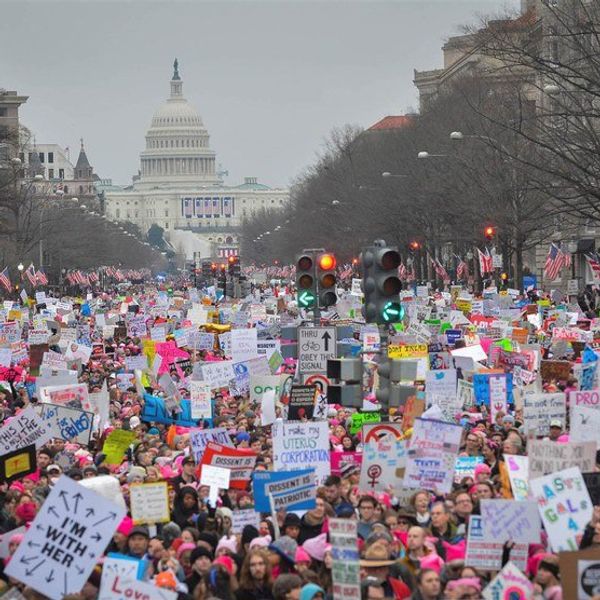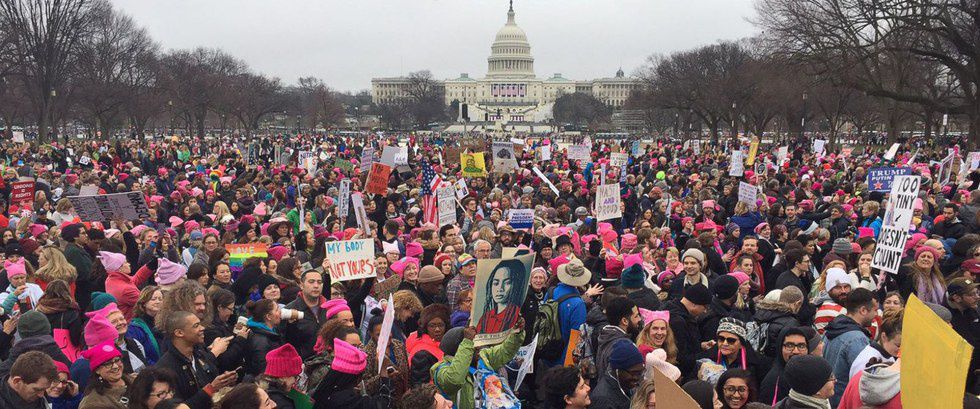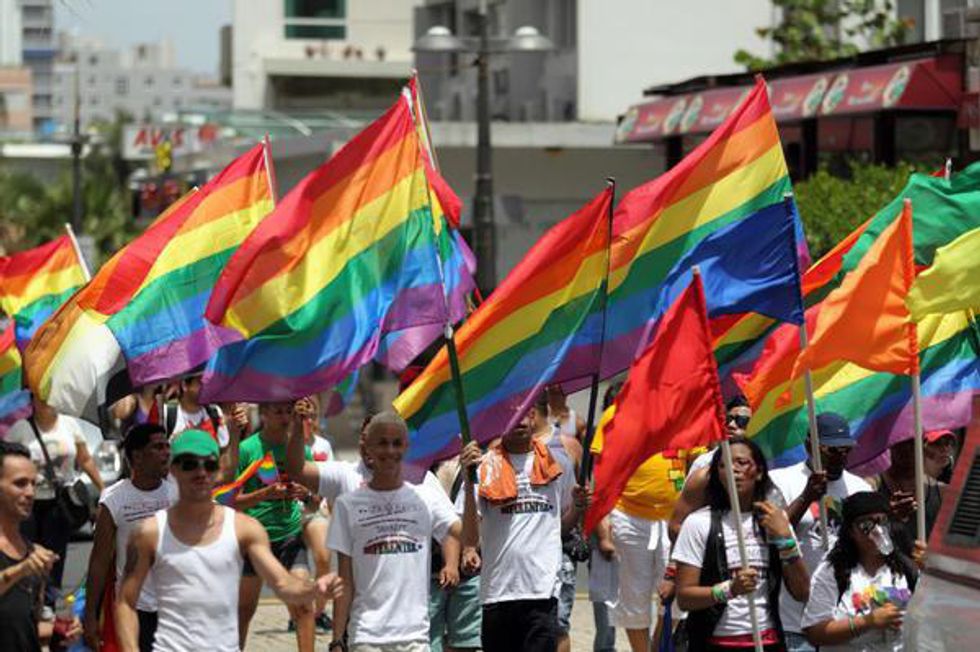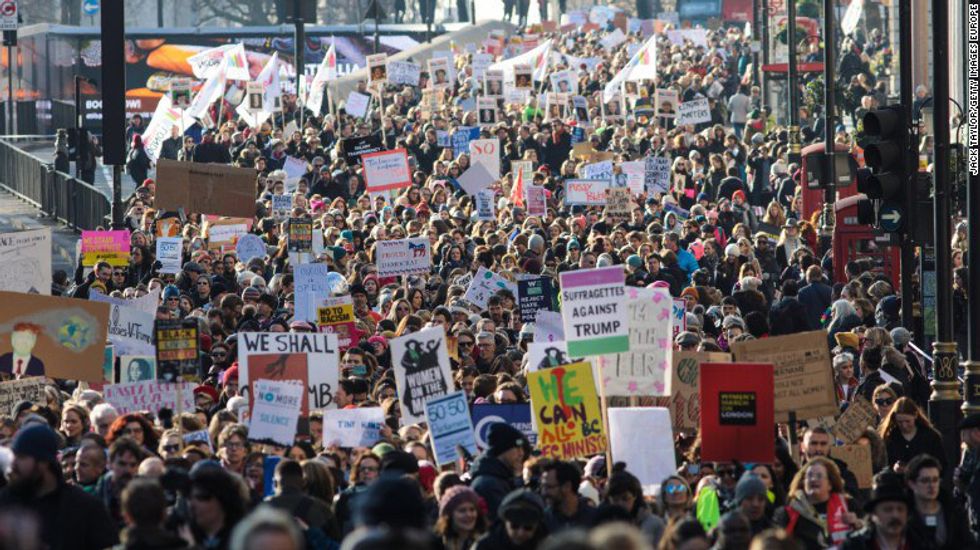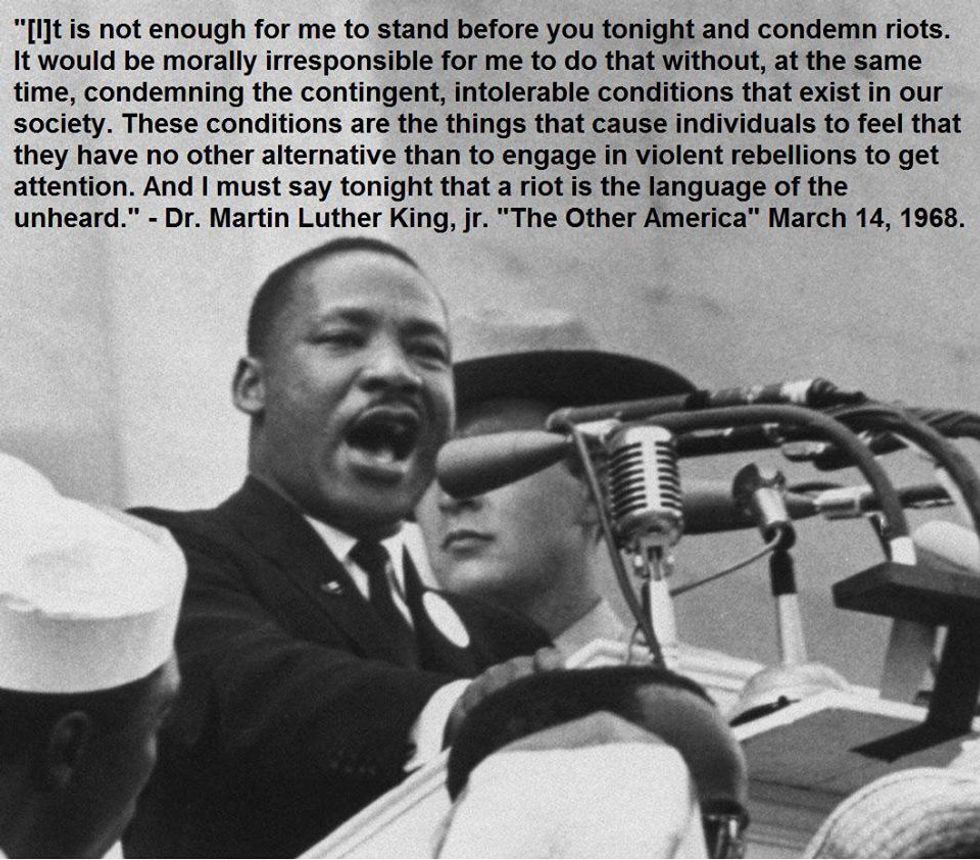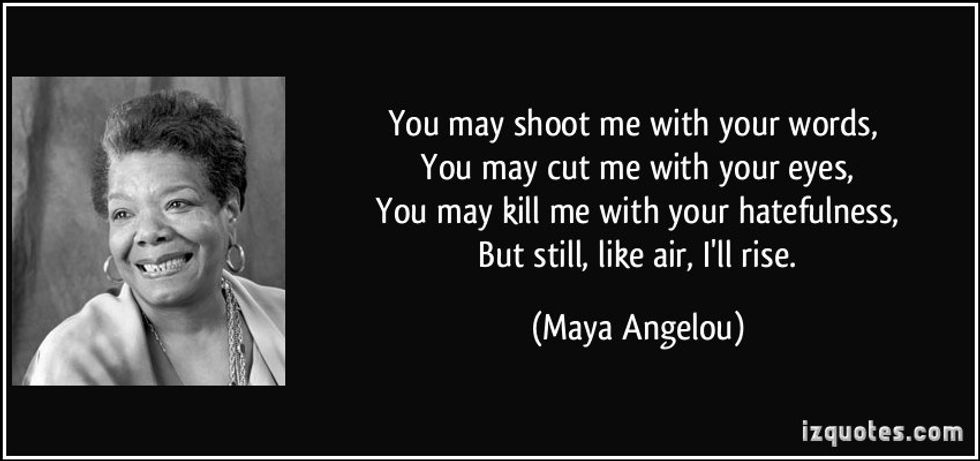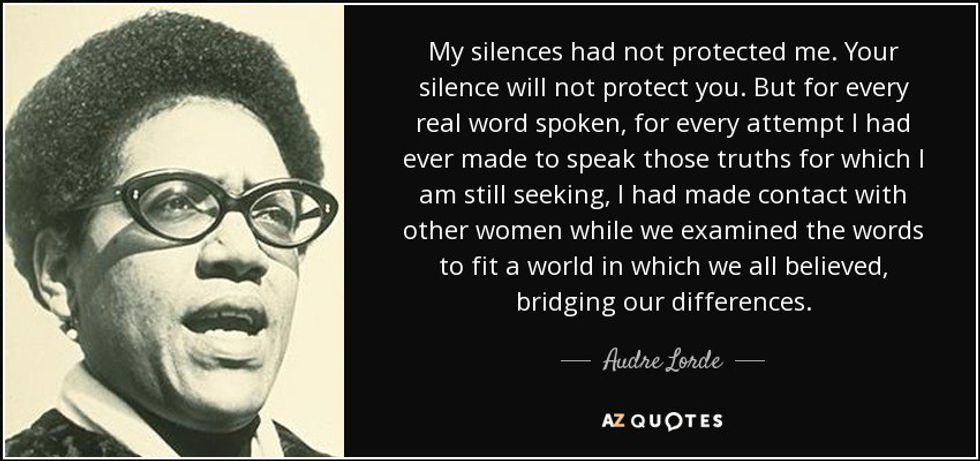Today, I felt inspired watching a diverse group of people join in solidarity, unity, and love from all walks of life to stand up for themselves and for their neighbors. Today, I raised my fist with them and chanted their grievances, their protestations, their demands, their calls for equality. Today, I felt hope. Today, I encouraged myself not to stop striving for true freedom for all.
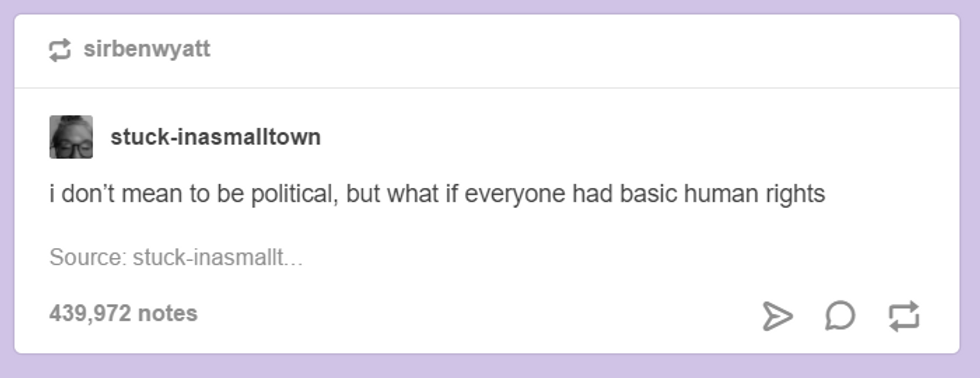
This is not just a bunch of "crybabies" throwing a fit for not getting what they want. This is a demonstration for people who were singled out and threatened during last year's presidential campaign, who will not tolerate the injustice and unlawfulness of the administration's racist, sexist, xenophobic, homophobic, ableist, oppressive policies and legislation. This is a resistance to reject normalizing these toxic ideologies. Last thing I checked, babies don't cry about that. Oppressed and ignored groups are crying out for their rights as human beings, simple as that.
Despite not being able to attend the Women's March on Washington for a slew of reasons, I diligently watched, hung on to every word, and participated as much as I could at home (by contacting my representatives and showing online support) to make it known that our government should respect the rights of all its people. None of this is new or out of the blue. People have been dealing with hatred, suppression and mis/underrepresentation based on their identities for hundreds of years. From recent events with the presidency, administration, and hateful speech all over America, this march is a stance against the mistreatment and systematic oppression of these groups. We will not accept our rights being taken away. We are fighting for our lives.
Sarah Brown in her article on Vogue says: "I am going because I want to be counted. I want to link arms with my mother. To be a speck amongst hundreds of thousands of other specks who cared enough to show up to say, I do not agree."
Jenée Desmond-Harris on Vox writes about the importance and significance of intersectionality in this march, the point being that they want to emphasize and include rights for all women: LGBTQIA+ women, women of color, women from all kinds of religious backgrounds, women with disabilities, etc. Where intersectionality also comes in is to include men or non-binary identifying people from all categories as well.
A list of 31 reasons people are marching on Upworthy showcases a several individual's reasons for marching, including the better treatment of undocumented immigrants, good education, clean drinking water, trans rights, sexual assault, and so many more reasons.
The mission statement from WomensMarch.com states: "The rhetoric of the past election cycle has insulted, demonized, and threatened many of us - immigrants of all statuses, Muslims and those of diverse religious faiths, people who identify as LGBTQIA, Native people, Black and Brown people, people with disabilities, survivors of sexual assault - and our communities are hurting and scared. We are confronted with the question of how to move forward in the face of national and international concern and fear."
There is nothing wrong with disagreeing with and feeling angry and hurt that we have a president and millions of followers who detest or don't care about a large majority of its citizens. However, the march, the demand for policy changes and protections, and contacting our representatives are ways a democracy gets its point across that the people want and deserve their rights. If you realized your rights were under threat, you wouldn't call yourself a crybaby for fighting to protect your life. And just because we rally behind the idea of peaceful protest does not mean we aren't angry and shaken to our bones.
People are angry. Anger is viewed as irrational, unproductive, aggressive, unjustified, barbaric, proof of savagery. In Western values, we are taught to shut out anger, let is dissipate before we can speak rationally, whatever that means. However, when I think of anger, I think of anger as impactful. In these marches and protests, these are angry voices, seething with sarcasm, dissatisfaction, and complete abhorrence for their situation. Their words alone enact a form of protest, teasing hypocritical American values and the systematic favoritism we currently live in, angrily and mockingly pointing out its embarrassing flaws, failures, and criticizing the dense, ignorant, and ignoble supporters that attempt to grasp at loose strings to maintain it. What does anger say? Accomplish? What does denying anger take away? How can anger be helpful? Why be angry at all?
You forget that America was founded on protests. You forget the history and the importance of protests that resulted in more rights and freedoms for so many people today - just take a look at Time's list of just a few pivotal protests in American history.
Anger is a protest. Anger denotes the fundamental feeling that something is wrong, that the way people are being treated is wrong, and that their anger is justified. I may even offer that we are angry because we love so many good people who are being treated very badly.
I come back with this: oppressors don’t like angry people. Hierarchical systems don’t like anger, especially when expressed by marginalized and oppressed groups. Anger is dangerous. Anger calls out, anger mocks, anger holds accountability, anger demands change. Oh, anger is fine when it comes from the tyrants who march their men to play in their charade for power. Anger is fine when it dehumanizes the people they are trying to capture and bestialize so they can extort their resources and lay upon their backs. But anger does not become fine when it is turned around, when the anger comes from the people, from the ones who are being taken advantage of, from the ones who are mutilated, brutalized, ambushed, extorted, and murdered. That anger is uncalled for.
But there is a twist, you see. The anger that the oppressors


